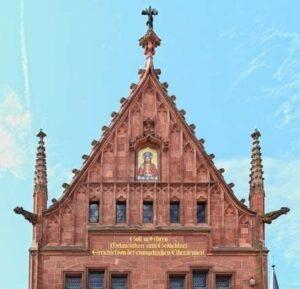The meaning of Philippe Melanchthon for Europe today
Since the creation of the European Union, the members of the Union no longer resolve their conflicts by violence, but by negotiation. While preserving their individual identities, they develop ever more numerous ways of collaboration and exchange. The dividing character of the frontiers is past, the cultural differences are henceforth considered as an enrichment.
The relationship between the different Church bodies has also changed considerably. The creation of the Ecumenical Council of Churches in 1948, the Vatican II Council from 1962 till 1965, the Concorde of Leuenberg in 1973 and the Ecumenical Charta of 2001 were key moments. Churches no longer exclude each other, but consider their differences as enrichment and as a challenge. It is in this context that the concept of “reconciling diversity” came into being.
Melanchthon finds a new actuality today. He knew that a real mutual understanding is possible only when we study together the sources from which Europe developed. He found references in the authors of Greek and Latin Antiquity and especially in the Bible. He also worked hard for a better knowledge of the Greek and Latin fathers and so laid the foundations of a dialogue between the Protestant Churches, the Roman Catholic Church and the oriental Churches. Melanchthon also studied the Jewish and Arabic medieval inheritance.
Europe was deeply marked by the coming together of the ancient traditions : Christians, Jews and Moslems. This multiple historic inheritance could easily lead to new separations and subdivisions. It should be possible, in following in Melanchthon’s footsteps, to open a dialogue and to work together on the elaboration of a common European identity. The house Melanchthon de Bretten considers that it’s his destiny to work for a better knowledge of the life and the work of Melanchthon.



